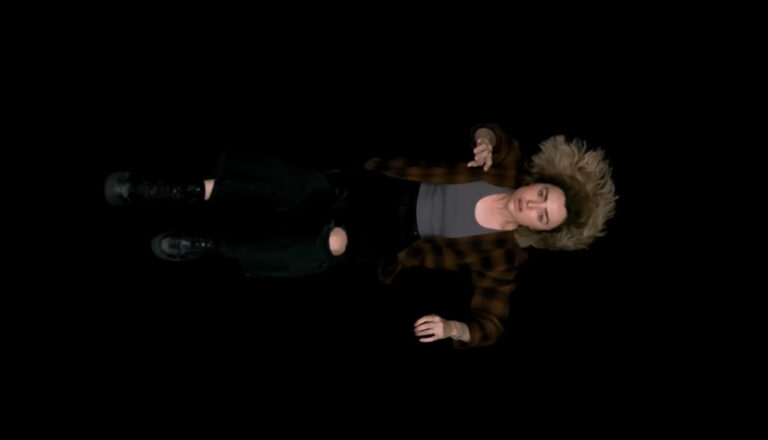
School Spirits
Don’t be fooled by the show’s teenage characters. Parents would be advised not to let their own teens be haunted by its content.

Prestige TV is all the rage, I suppose, what with its complex, multilayered storylines, resonant acting and its darkish, content-laden episodes. But sometimes when you turn on the telly, what you really want is for folks to lay a bunch of science on you and then blow stuff up.
Welcome to White Rabbit Project, Netflix’s first foray into the world of reality-based edutainment. It’s like Discovery’s Mythbusters, minus the myths but with plenty of busting.
If you’re going to do a Mythbusters-like show, it’s nice to have a few actual Mythbusters on hand. Netflix—which has never been accused of doing anything halfway—snagged three of them: Tory Belleci, Kari Byron and Grant Imahara, popular vets from Discovery’s long-running series.
Over the course of their decade on Mythbusters, this trio created flying guillotines, ran over cars with out-of-control snowplows and blew up pig corpses, all in the name of science (and ratings). If show founders (and legendary frienemies) Adam Savage and Jamie Hyneman were, like, geeky-cool science teachers, Tory, Kari and Grant were more like your knowledgeable-but-dangerous older siblings holding several cans of spray cheese and a pack of firecrackers.
But White Rabbit Project isn’t just a Mythbusters rehash: The trio isn’t probing cultural “myths” to see if they’re scientifically plausible. They’re tackling big-picture questions: Is it possible to mimic superhero superpowers? What was the craziest weapon from World War II? Why don’t we all have hoverboards yet, and when can we expect to get them? Every episode is presented as a pseudo-contest, where the three compete to see which concept/gadget/superpower is the “best,” based on ever-shifting criteria.
Grant, Tory and Kari obviously like working together. “It felt very much like a family again,” Tory told Uproxx of the new project. For a show predicated on science, it’s only appropriate that the chemistry would be so strong.
But alas, the show is also a bit more volatile than I recall Mythbusters being in terms of its problematic content. Oh, White Rabbit Project still has the same vibe as that fondly remembered Discovery program. And it mostly minds its manners, sticking to science, friendly ribbing and some occasionally horrific puns.
But bad words do occasionally squirt to the surface: And while f- and s-bombs are edited out (either with an audible bleep or simply expunged), words like “d–n” or “h—” float through television speakers unchecked. Moreover, some sexual entendres get bandied about in conversation, too. And, like the original Mythbusters, viewers are sometimes exposed to synthetic blood and guts.
Still, we’re talking about an incremental increase in content, not a complete rejection of Mythbuster’s family-friendly feel. And frankly, it’s nice to see a show focus more on actual explosions, rather than metaphorical moral ones.
(Editor’s Note: Plugged In is rarely able to watch every episode of a given series for review. As such, there’s always a chance that you might see a problem that we didn’t. If you notice content that you feel should be included in our review, send us an email at letters@pluggedin.com, or contact us via Facebook or Instagram, and be sure to let us know the episode number, title and season so that we can check it out.)
Kari, Grant and Tory examine six would-be superpowers and try to determine just how feasible each would be to develop and use. Mind control seems to be the most “realistic” potential power—though it admittedly still involves pasting a bunch of electrical sensors and stimulators on your archenemy’s noggin.
In the opening sequence, a fictional superhero zaps a villain with an electrical bolt, leaving behind a bunch of flaming, charred meat (intended to look like a grade-C horror effect). A cop quips, “Smells like another job well done!” Elsewhere, when Tory tries out a real lightning-causing contraption, he zaps the heads of “invading ninjas”—cardboard cutouts with methane-filled balloons for heads. (The balloon-heads naturally explode in balls of fire.)
Meanwhile, as part of the mind-control experiment, Kari installs computer chips into the wee brains of anesthetized giant cockroaches. When she asks the nearby scientist how he can tell male cockroaches from female ones, the scientist admits that he’s not good at “sexing” them. “I’ve never sexed a cockroach either,” Kari says. When Tory dresses in a metallic suit (as part of the lightning power experiment), he quips about going to a “dungeon convention” and grows uncomfortable when someone adjusts the suit hear his crotch.
Kari uses a mind control device on Tory during a fabricated Italian dinner that includes glasses of wine. (While Tory clearly wants to drink the wine, it’s unclear whether he ever does: Kari’s “mind control” causes Tory’s muscles to jerk and twitch, sending wine and sometimes glasses flying.) Tory swears during dinner and elsewhere, uttering “h—” and “d–n.” About half a dozen f-words and two s-words seem to be edited out. God’s name is misused twice.

Paul Asay has been part of the Plugged In staff since 2007, watching and reviewing roughly 15 quintillion movies and television shows. He’s written for a number of other publications, too, including Time, The Washington Post and Christianity Today. The author of several books, Paul loves to find spirituality in unexpected places, including popular entertainment, and he loves all things superhero. His vices include James Bond films, Mountain Dew and terrible B-grade movies. He’s married, has two children and a neurotic dog, runs marathons on occasion and hopes to someday own his own tuxedo. Feel free to follow him on Twitter @AsayPaul.

Don’t be fooled by the show’s teenage characters. Parents would be advised not to let their own teens be haunted by its content.

‘Drops of God’ focuses on a wine-centric competition, and it comes with notes of sexual content and some crude language, too.

Apple TV+ welcomes preschoolers to Yo Gabba GabbaLand—though parents may want to note the show’s references to magic.

FX’s ‘The Beauty’ will certainly make its viewers think about beauty and vanity, but so many ghastly content concerns make this an ugly show.